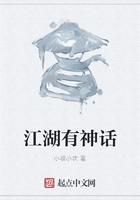Philip Stark went back to the hotel with the tin box under his arm. He would like to have entered the hotel without notice, but this was impossible, for the landlord's nephew was just closing up. Though not late for the city, it was very late for the country, and he looked surprised when Stark came in.
"I am out late," said Stark, with a smile.
"Yes."
"That is, late for Milford. In the city I never go to bed before midnight."
"Have you been out walking?"
"Yes."
"You found it rather dark, did you not?"
"It is dark as a pocket."
"You couldn't have found the walk a very pleasant one."
"You are right, my friend; but I didn't walk for pleasure. The fact is, I am rather worried about a business matter. I have learned that I am threatened with a heavy loss--an unwise investment in the West--and I wanted time to think it over and decide how to act."
"I see," answered the clerk, respectfully, for Stark's words led him to think that his guest was a man of wealth.
"I wish I was rich enough to be worried by such a cause," he said, jokingly.
"I wish you were. Some time I may be able to throw something in your way."
"Do you think it would pay me to go to the West?" asked the clerk, eagerly.
"I think it quite likely--if you know some one out in that section."
"But I don't know anyone."
"You know me," said Stark, significantly.
"Do you think you could help me to a place, Mr. Stark?"
"I think I could. A month from now write to me Col. Philip Stark, at Denver, Colorado, and I will see if I can find an opening for you."
"You are very kind, Mr.--I mean Col.
Stark," said the clerk, gratefully.
"Oh, never mind about the title," returned Stark, smiling good-naturedly. "I only gave it to you just now, because everybody in Denver knows me as a colonel, and I am afraid a letter otherwise addressed would not reach me.
By the way, I am sorry that I shall probably have to leave you to-morrow."
"So soon?"
"Yes; it's this tiresome business. I should not wonder if I might lose ten thousand dollars through the folly of my agent. I shall probably have to go out to right things."
"I couldn't afford to lose ten thousand dollars," said the young man, regarding the capitalist before him with deference.
"No, I expect not. At your age I wasn't worth ten thousand cents. Now--but that's neither here nor there. Give me a light, please, and I will go up to bed."
"He was about to say how much he is worth now," soliloquized the clerk. "I wish he had not stopped short. If I can't be rich myself, I like to talk with a rich man. There's hope for me, surely. He says that at my age he was not worth ten thousand cents. That is only a hundred dollars, and I am worth that. I must keep it to pay my expenses to Colorado, if he should send for me in a few weeks."
The young man had noticed with some curiosity the rather oddly-shaped bundle which Stark carried under his arm, but could not see his way clear to asking any questions about it. It seemed queer that Stark should have it with him while walking. Come to think of it, he remembered seeing him go out in the early evening, and he was quite confident that at that time he had no bundle with him. However, he was influenced only by a spirit of idle curiosity. He had no idea that the bundle was of any importance or value. The next day he changed his opinion on that subject.
Phil Stark went up to his chamber, and setting the lamp on the bureau, first carefully locked the door, and then removed the paper from the tin box. He eyed it lovingly, and tried one by one the keys he had in his pocket, but none exactly fitted.
As he was experimenting he thought with a smile of the night clerk from whom he had just parted.















